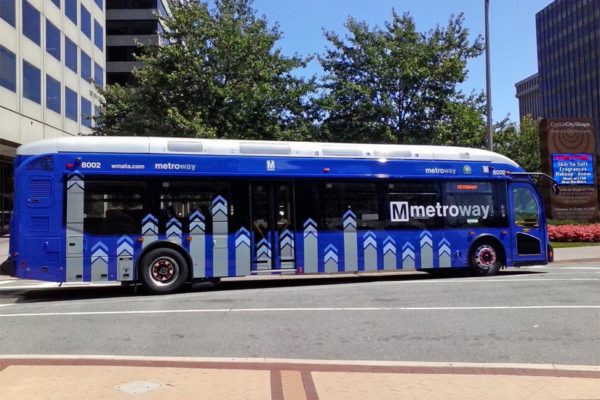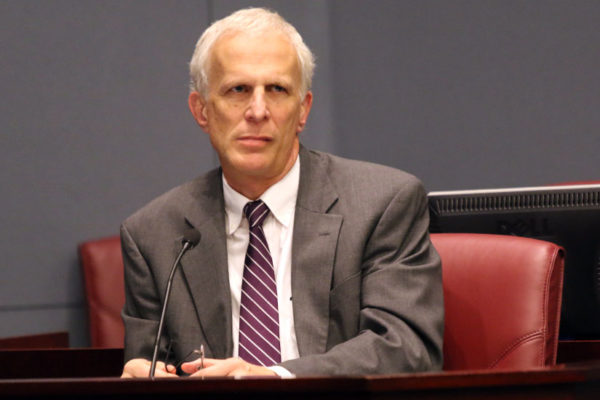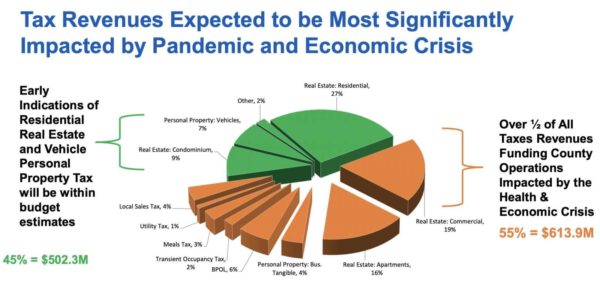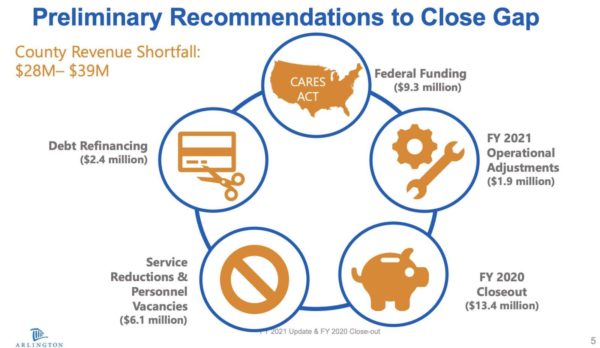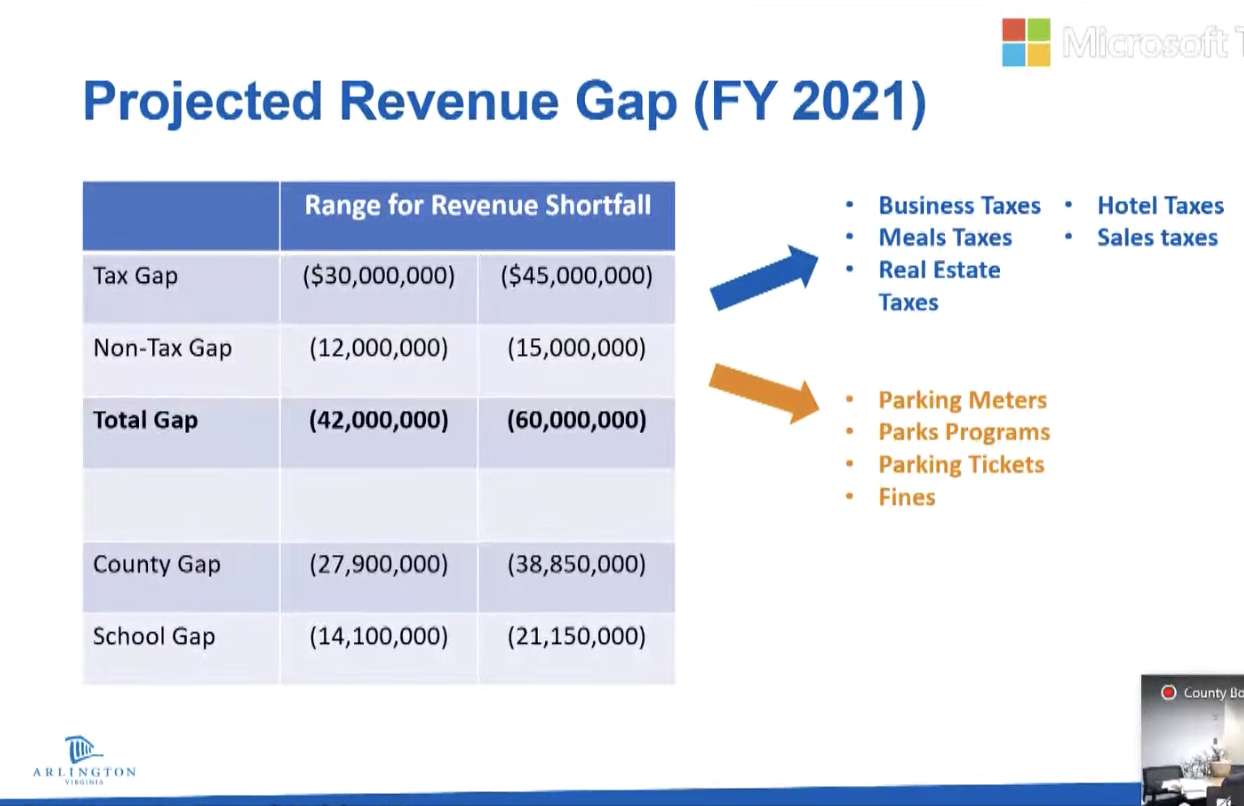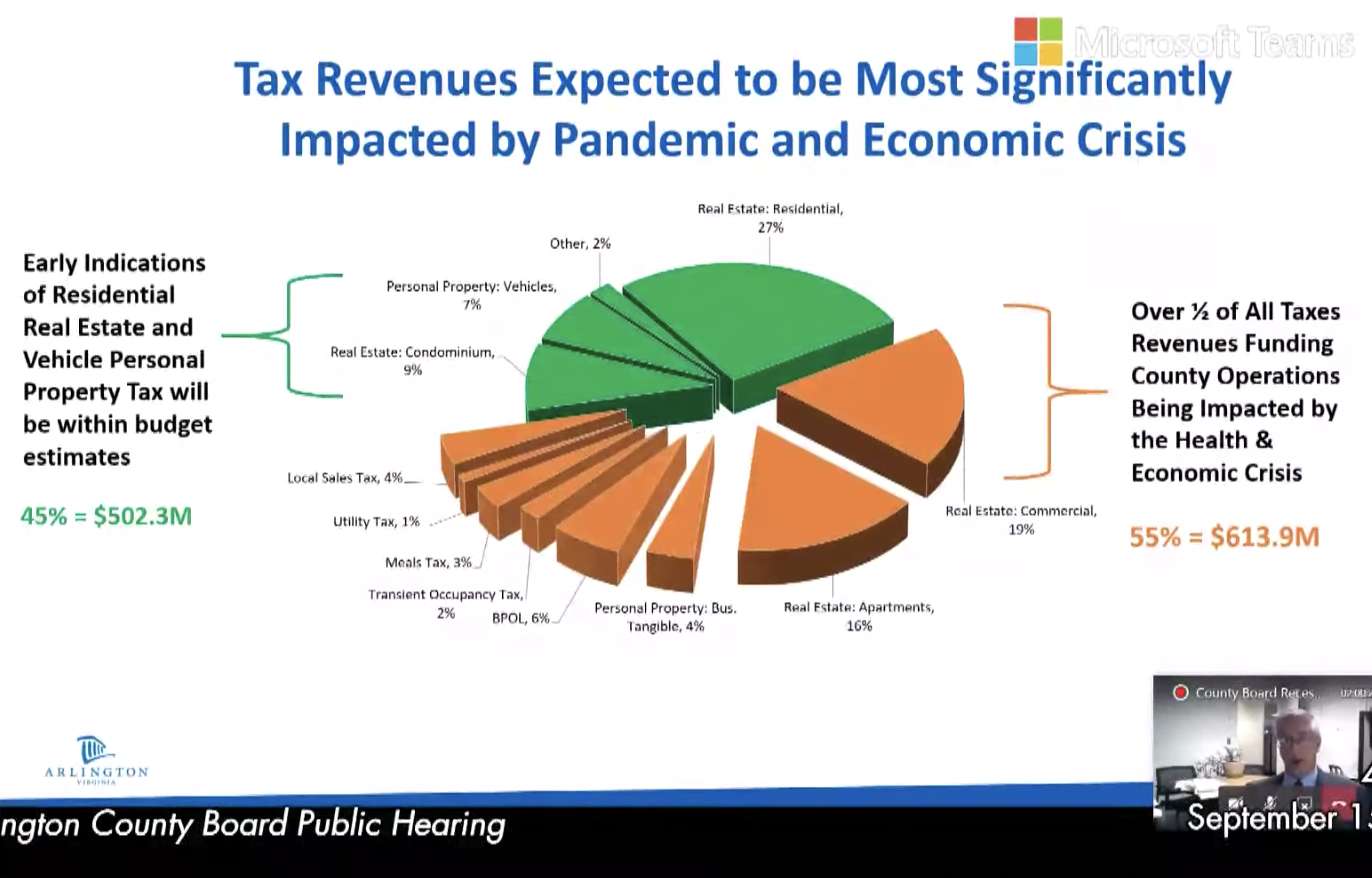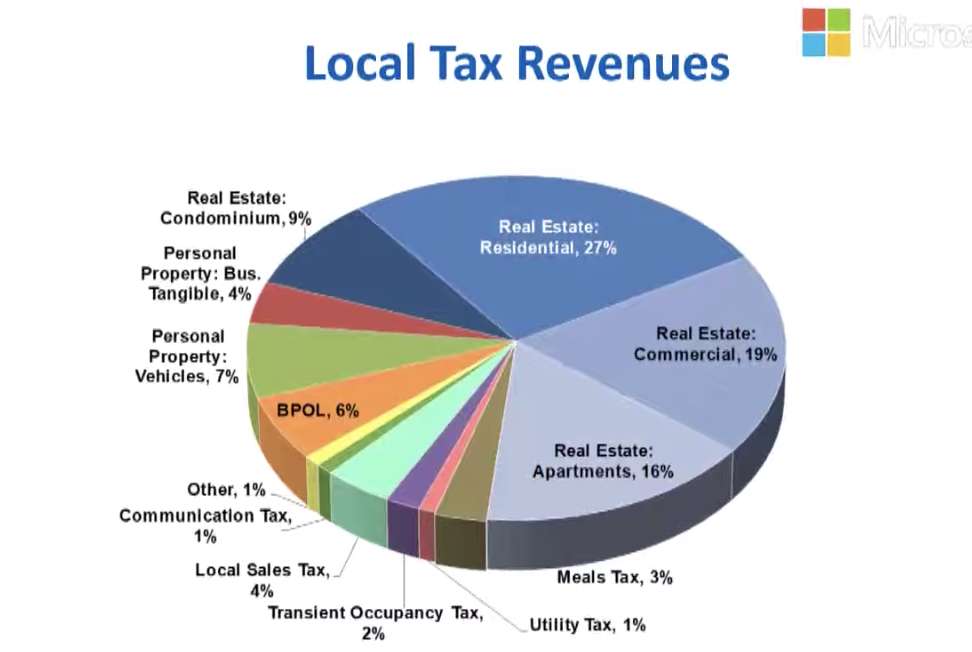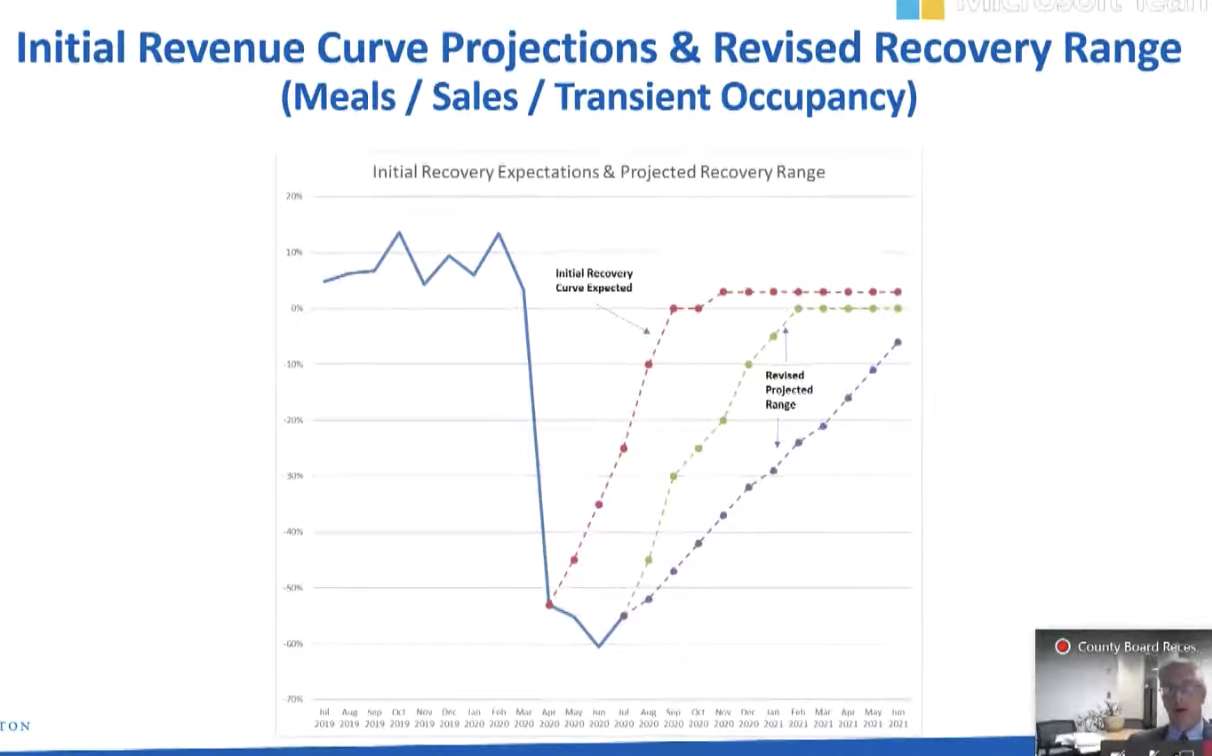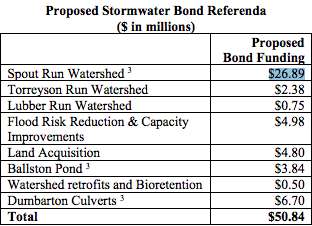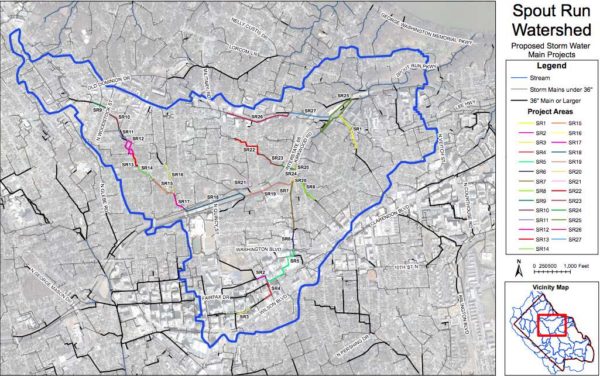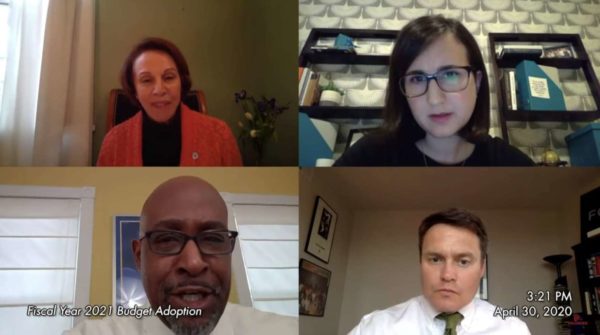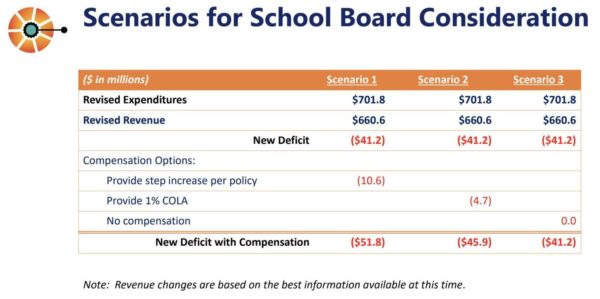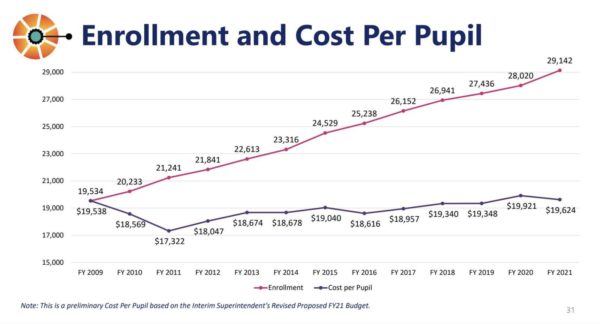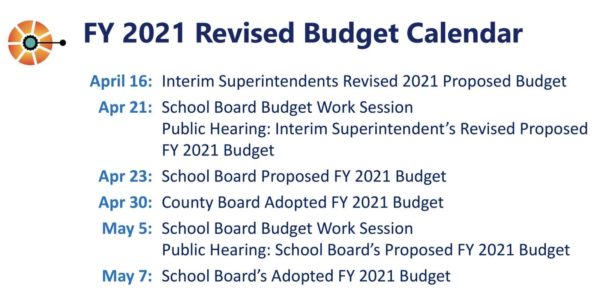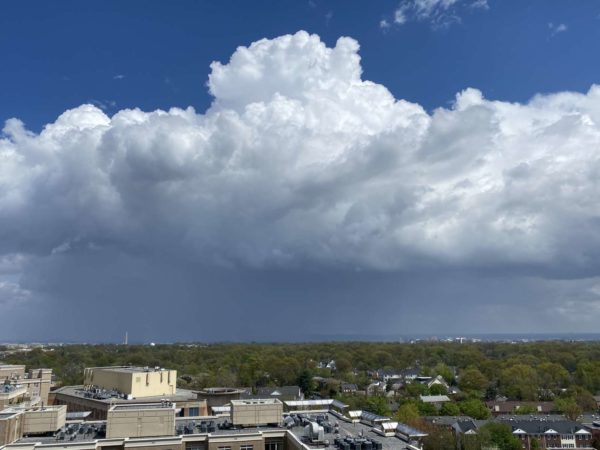(Updated at noon) Metro’s “barebones” Fiscal Year 2022 budget proposal threatens to eliminate service on a number of bus lines running through Arlington.
Among the proposed cuts is the Metroway route between Pentagon City and the Braddock Road Metro stations.
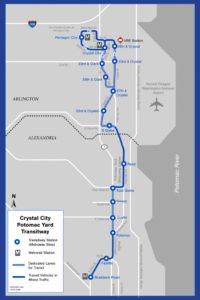 Arlington and Alexandria have spent millions building the Crystal City/Potomac Yard Transitway that the Metroway line serves, with more than a dozen stops, primarily in the Crystal City and Potomac Yard area. An $27.7 million expansion of the Transitway to Pentagon City is in the works and set for construction.
Arlington and Alexandria have spent millions building the Crystal City/Potomac Yard Transitway that the Metroway line serves, with more than a dozen stops, primarily in the Crystal City and Potomac Yard area. An $27.7 million expansion of the Transitway to Pentagon City is in the works and set for construction.
The revenue-starved Washington Metropolitan Area Transit Authority shut Metroway down at the beginning of the pandemic in March, and has since experienced a system-wide 90% decline in ridership. The budget, as proposed, would extend the closure at least to mid-2022.
With Amazon’s choice of National Landing for its HQ2 headquarters in Pentagon City and Virginia Tech’s new Innovation Campus to be situated next door in Alexandria, the budget moves have caused concern for many, including Tracy Sayegh Gabriel, president and executive director of the National Landing Business Improvement District.
“Transit access is at the center of National Landing’s vibrant future and is a critical component of keeping our community competitive, equitable and sustainable,” Gabriel told ARLnow. “Public transit is more essential today than ever before as it enables our region’s frontline workers to access their jobs and continue serving the community during the pandemic. As the backbone of our transportation network and the most efficient means of reaching our commercial centers, our economic recovery will similarly depend on the continued funding, reliability and effectiveness of WMATA.”
Metro, which has sought a second injection of federal relief funding since May, is also proposing to shutter 19 Metrorail stations — including Arlington Cemetery, Clarendon, East Falls Church and Virginia Square — as well as eliminate weekend rail service and reduce weekday hours to 5 a.m.-9 p.m.
Metro is proposing the elimination of the following bus lines in Arlington and Alexandria:
- 4A and 4B from Pershing Avenue to the Pentagon
- 7F and 7Y from Lincolnia to North Fairlington
- 10A from Alexandria to the Pentagon
- 16A, 16E, 16G and 16H on Columbia Pike
- 22A, 22F from Barcroft to South Fairlington
- 25B from Landmark to Ballston
- 38B from Ballston to Farragut Square
- 7M from Mark Center to the Pentagon
Other lines are set for reductions or modifications in service.
In neighboring Alexandria, Mayor Justin Wilson said the changes would harm those who most rely on Metro service.
“My hope is that the federal government enacts new COVID-relief legislation that provides support to transit agencies and local and state governments so that we do not need to inflict these cuts on transit and city services,” Wilson said. “If that doesn’t happen, this will very detrimental to our community. Many of our residents rely on these transit services to get to places of work, healthcare services and essential trips. It has taken generations to develop our transit system and dismantling it will be tragic.”
On Tuesday night, members of Metro’s Rider Advisory Council (RAC) said that the bus cuts were “dramatic” and “draconian.”
“I’m just really sad and scared about this,” RAC Member Rebekah Mason said. “It just seems really highly prejudicial and really not a way to treat riders who have jobs, other than white collar jobs.”
Doris Ray, a member of the WMATA Accessibility Advisory Committee, wants the agency to instead enhance bus service in light of potential rail cuts.
“I am concerned as many in the community about the ability of people who do not drive, particularly essential workers, but for everyone who doesn’t drive and rely on transit to be able to get around,” Ray said.
Photo via Donna Gouse


